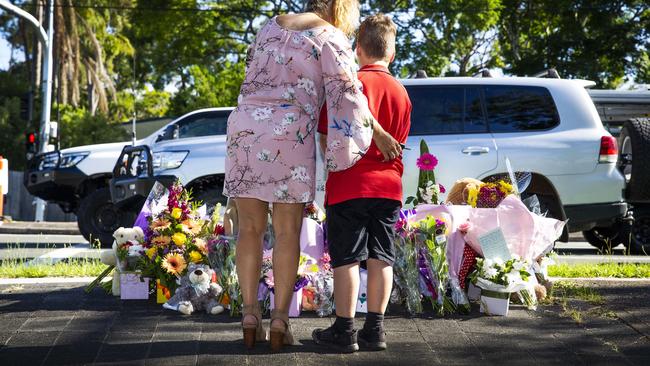‘Zero tolerance’: Push for mandatory drug testing as road death toll soars
Shocking new statistics have revealed the deadly extent of Queenslanders’ drug use, with more than 20 per cent of road deaths in a single year involving someone driving under the influence. What’s the solution? HAVE YOUR SAY
Police & Courts
Don't miss out on the headlines from Police & Courts. Followed categories will be added to My News.
Drug testing drivers involved in all crashes should be mandatory – with a startling one in six young Queenslanders admitting to driving under the influence of illicit drugs – the state’s peak motoring body says.
RACQ will lobby the Queensland Government to enforce mandatory saliva testing following even minor crashes on the back of its latest Annual Road Safety Survey and the high number of fatalities involving drug drivers.
Their shock findings come after the Department of Transport and Main Roads (TMR) reported that in 2022, 61 people died in crashes involving a drug driver, about 20.5 per cent of the lives lost on Queensland roads.

For the previous five years, lives lost from crashes involving a drug driver represented around one in every five deaths on Queensland roads, 18.5 per cent.
RACQ Head of Public Policy Dr Michael Kane said their 2023 safety survey was the first time the club had asked Queensland drivers about their drug use and were shocked by the results.
When asked if they drove under the influence of any drugs, 23 per cent of 18-24 said they did and 16 per cent admitted to driving under the effects of illicit drugs like ice, marijuana, and cocaine.
“These results are extremely concerning and have exposed the prevalence of drug driving, particularly among our youngest and most inexperienced drivers,” Dr Kane said.
“Considering every fifth fatality on Queensland roads in 2022 involved a drug driver, we need these motorists to wake up to themselves and not put their life, or the lives of others at risk.”
Between 2018 and 2022, 280 people died in road crashes involving a drink driver and 267 died in crashes involving a drug driver.
Russell Field’s son Matthew, his partner Kate Leadbetter and their unborn son Miles were killed by a teen in a stolen car on January 26, 2021.

The youth, who was aged 17 at the time, was affected by both drugs and alcohol when he sped through a red light, crashed into a tow truck and rolled into the couple as they were walking their dogs.
Mr Field said he supported more drug testing for young drivers, as well as harsher penalties for those found to have driven under the influence.
“They are allowing them to do it. There should be zero tolerance,” he said.
Mr Field said there should be harsher, mandatory punishments for drivers who put others at risk by taking the wheel while affected by drugs.
“And not only these kids – society in general. People are becoming too complacent,” he said.
As drivers aged the prevalence of drug driving dropped but was still surprisingly high with eight per cent of 25 to 34-year-olds and five per cent of 35 to 44-year-olds admitting to the criminal behaviour.
The State Government has committed to developing a package of reforms as part of a wide-ranging drug driving review and Dr Kane said mandatory saliva tests after a crash should be a part of them.
A discussion paper released by TMR late last year on cannabis and driving in the state, as part of the review, revealed that “the true contribution of drugs to crashes in Queensland is difficult to accurately determine”.
“This is because Queensland doesn’t have compulsory drug testing following a crash, so actual rates of drug driving may be much higher,” the paper stated.
Dr Kane said it was clear increased testing would improve data on the issue and increase the chance of drug drivers being caught.
A TMR spokeswoman said Queensland did not have compulsory drug and/or alcohol testing for drivers involved in traffic crashes.
“However, Queensland Police Service conduct testing based on the circumstances of the crash and observations of the driver’s behaviour,” she said.
“QPS conducts approximately 50,000 random roadside drug tests annually. If you drive and take drugs you will get caught.”
The Courier-Mail understands that police breath test as a matter of course at every crash they attend, however drug testing is a lot more costly so generally only test when they suspect drugs may be involved.


